Founded in 1938 and published semiannually by Sophia University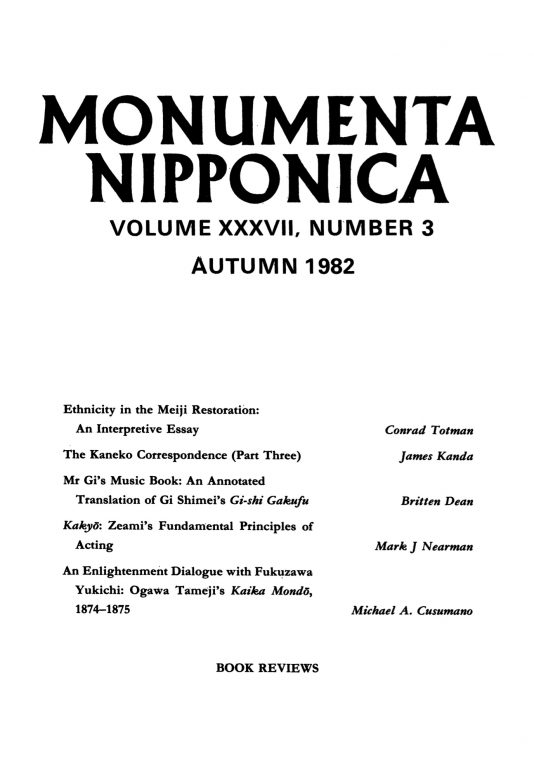 MN 37:3 (1982) 289–316The Kaneko Correspondence (Part 3)Kaneko Kentarō, Edited by James Kanda and William A. Gifford
MN 37:3 (1982) 289–316The Kaneko Correspondence (Part 3)Kaneko Kentarō, Edited by James Kanda and William A. Gifford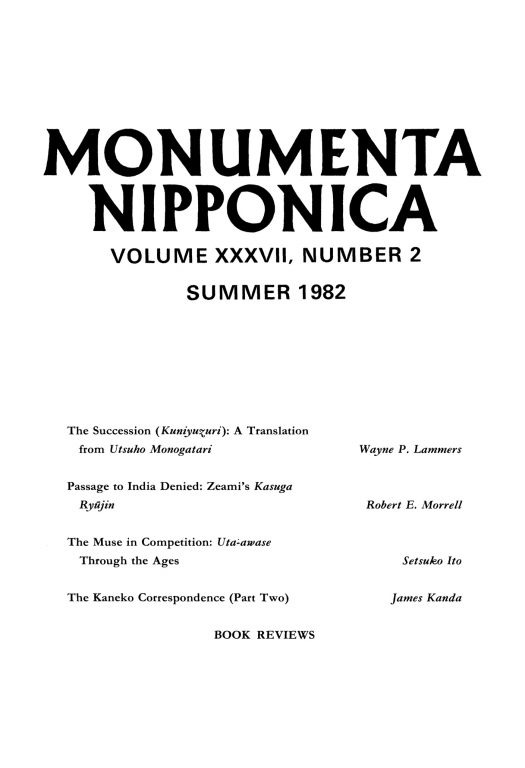 MN 37:2 (1982) 223–56The Kaneko Correspondence (Part 2)Kaneko Kentarō, Edited by James Kanda and William A. Gifford
MN 37:2 (1982) 223–56The Kaneko Correspondence (Part 2)Kaneko Kentarō, Edited by James Kanda and William A. Gifford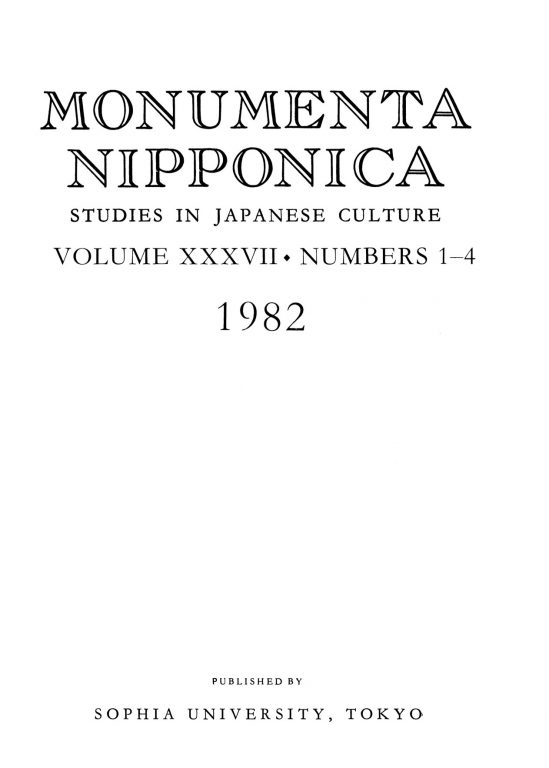 MN 37:1 (1982) 55–76The Kaneko Correspondence (Part 1) (Translation)Kaneko Kentarō, Edited by James Kanda and William A. Gifford
MN 37:1 (1982) 55–76The Kaneko Correspondence (Part 1) (Translation)Kaneko Kentarō, Edited by James Kanda and William A. Gifford MN 37:1 (1982) 41–76The Kaneko Correspondence (Part 1)James Kanda and William A. Gifford
MN 37:1 (1982) 41–76The Kaneko Correspondence (Part 1)James Kanda and William A. Gifford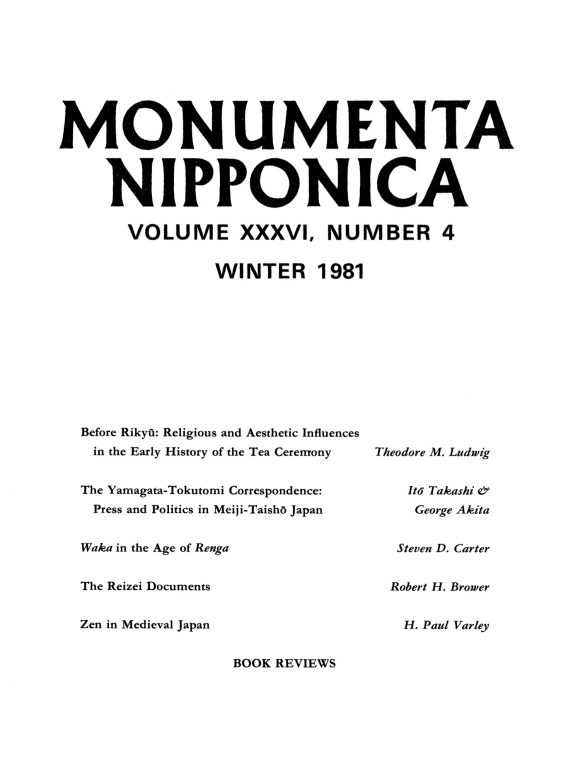 MN 36:4 (1981) 391–423The Yamagata-Tokutomi Correspondence: Press and Politics in Meiji-Taishō JapanGeorge Akita and Takashi Itō
MN 36:4 (1981) 391–423The Yamagata-Tokutomi Correspondence: Press and Politics in Meiji-Taishō JapanGeorge Akita and Takashi Itō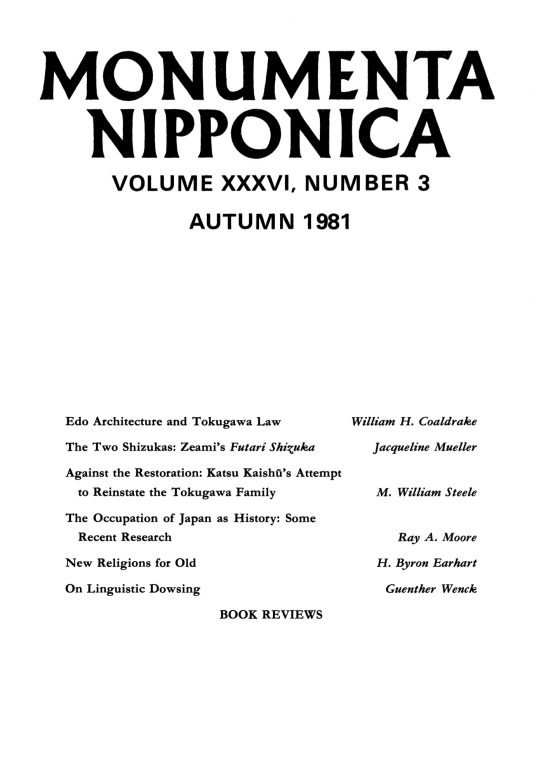 MN 36:3 (1981) 299–316Against the Restoration: Katsu Kaishū’s Attempt to Reinstate the Tokugawa FamilyM. William Steele
MN 36:3 (1981) 299–316Against the Restoration: Katsu Kaishū’s Attempt to Reinstate the Tokugawa FamilyM. William Steele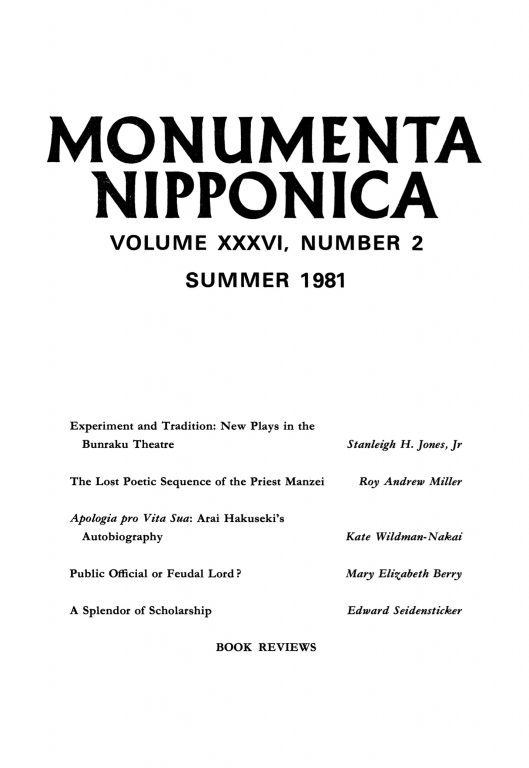 MN 36:2 (1981) 173–86Apologia pro Vita Sua: Arai Hakuseki’s AutobiographyKate Wildman-Nakai
MN 36:2 (1981) 173–86Apologia pro Vita Sua: Arai Hakuseki’s AutobiographyKate Wildman-Nakai MN 36:2 (1981) 187–93Public Official or Feudal Lord?Mary Elizabeth Berry
MN 36:2 (1981) 187–93Public Official or Feudal Lord?Mary Elizabeth Berry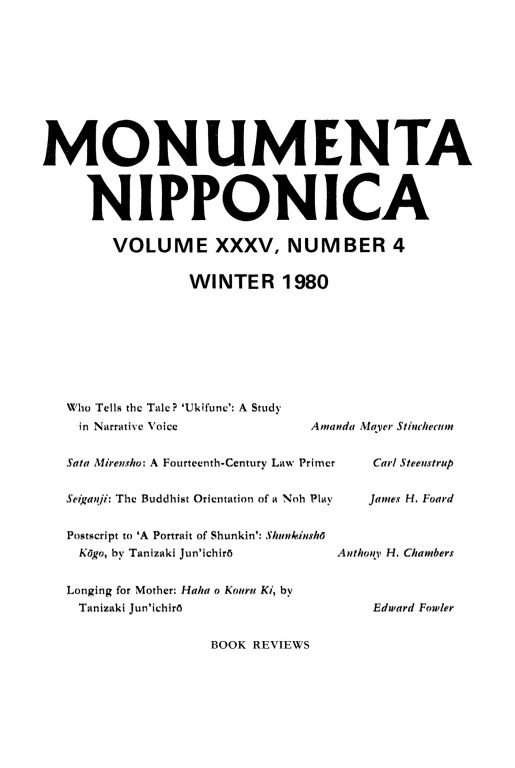 MN 35:4 (1980) 405–35Sata Mirensho: A Fourteenth-Century Law PrimerTranslated by Carl Steenstrup
MN 35:4 (1980) 405–35Sata Mirensho: A Fourteenth-Century Law PrimerTranslated by Carl Steenstrup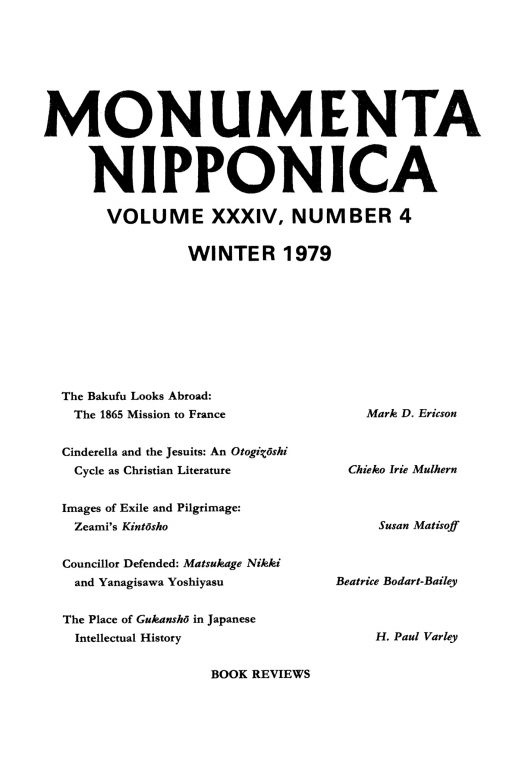 MN 34:4 (1979) 467–78Councillor Defended: Matsukage Nikki and Yanagisawa YoshiyasuBeatrice Bodart-Bailey
MN 34:4 (1979) 467–78Councillor Defended: Matsukage Nikki and Yanagisawa YoshiyasuBeatrice Bodart-Bailey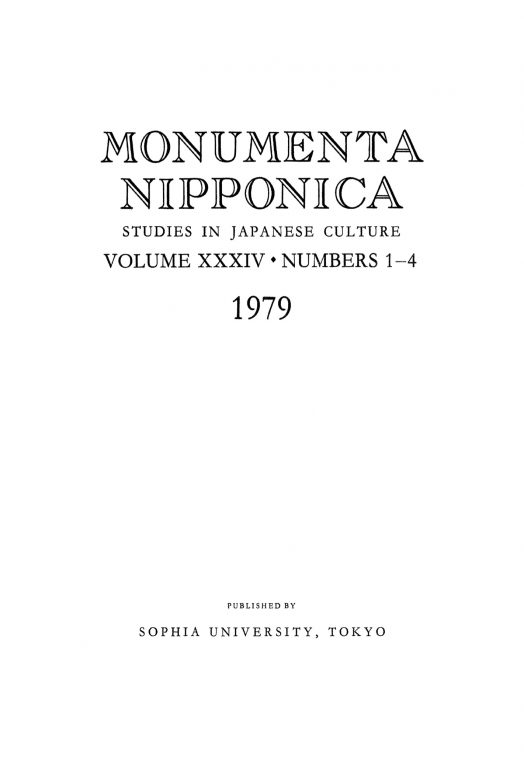 MN 34:1 (1979) 63–72Ōdōron (The Way of the King)Chiba Takusaburō , Translated by Richard Devine
MN 34:1 (1979) 63–72Ōdōron (The Way of the King)Chiba Takusaburō , Translated by Richard Devine MN 34:1 (1979) 49–72The Way of the King: An Early Meiji Essay on GovernmentRichard Devine
MN 34:1 (1979) 49–72The Way of the King: An Early Meiji Essay on GovernmentRichard Devine MN 34:1 (1979) 73–99Ōyama Estate and Insei Land PoliciesElizabeth Sato
MN 34:1 (1979) 73–99Ōyama Estate and Insei Land PoliciesElizabeth Sato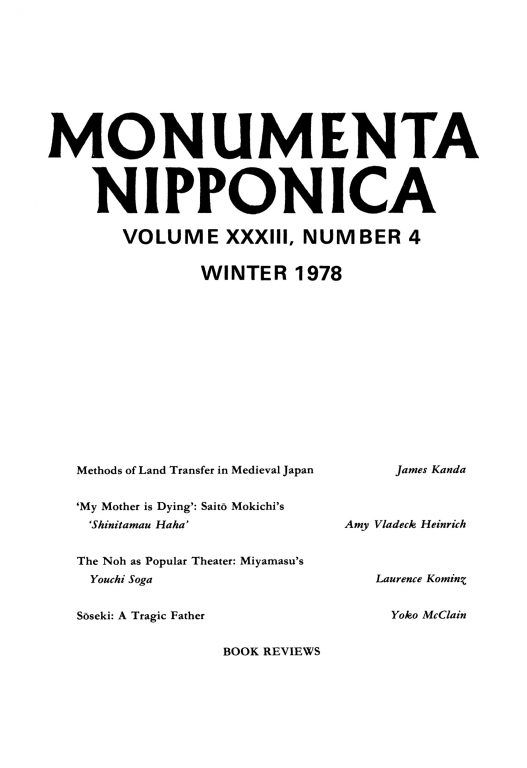 MN 33:4 (1978) 379–405Methods of Land Transfer in Medieval JapanJames Kanda
MN 33:4 (1978) 379–405Methods of Land Transfer in Medieval JapanJames Kanda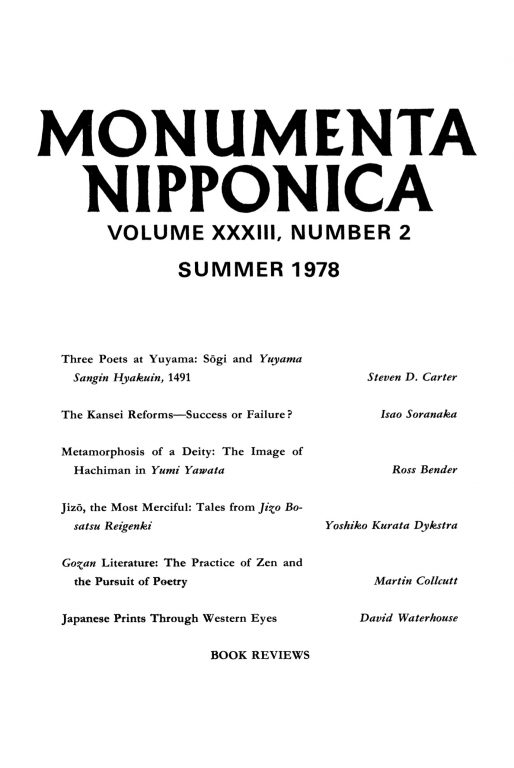 MN 33:2 (1978) 151–64The Kansei Reforms—Success or Failure?Isao Soranaka
MN 33:2 (1978) 151–64The Kansei Reforms—Success or Failure?Isao Soranaka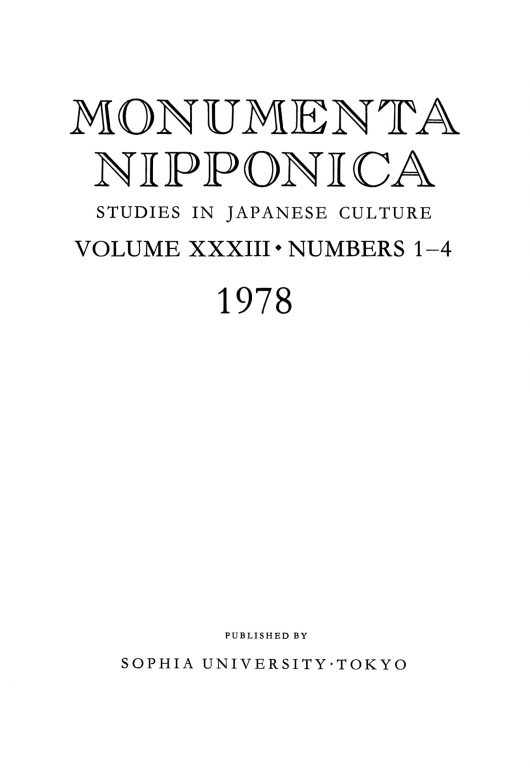 MN 33:1 (1978) 37–50Opinion Revised: Hara Takashi’s Views on Local GovernmentRichard Staubitz
MN 33:1 (1978) 37–50Opinion Revised: Hara Takashi’s Views on Local GovernmentRichard Staubitz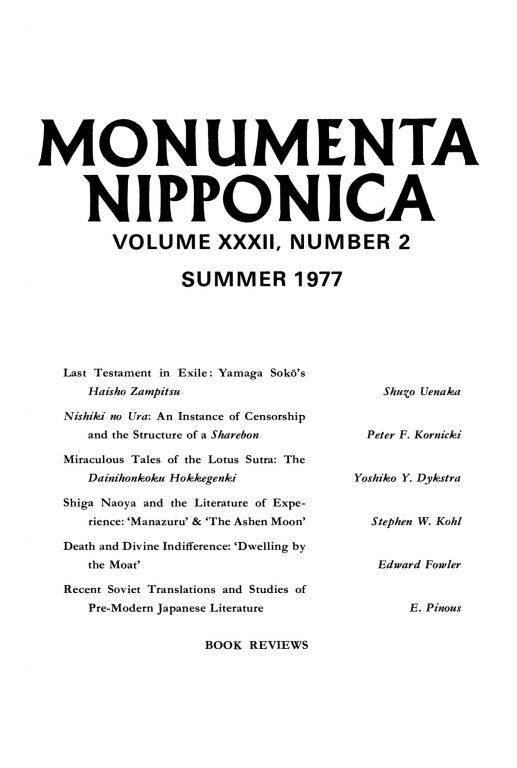 MN 32:2 (1977) 131–52Haisho ZampitsuYamaga Sokō, Translated by Shuzo Uenaka
MN 32:2 (1977) 131–52Haisho ZampitsuYamaga Sokō, Translated by Shuzo Uenaka MN 32:2 (1977) 125–52Last Testament in Exile: Yamaga Sokō’s Haisho ZampitsuShuzo Uenaka
MN 32:2 (1977) 125–52Last Testament in Exile: Yamaga Sokō’s Haisho ZampitsuShuzo Uenaka MN 32:2 (1977) 167–88A Brothel in the Light of Day: The Other Side of the BrocadeSantō Kyōden, Translated by Peter F. Kornicki
MN 32:2 (1977) 167–88A Brothel in the Light of Day: The Other Side of the BrocadeSantō Kyōden, Translated by Peter F. Kornicki MN 32:2 (1977) 153–88Nishiki no Ura: An Instance of Censorship and the Structure of a SharebonPeter F. Kornicki
MN 32:2 (1977) 153–88Nishiki no Ura: An Instance of Censorship and the Structure of a SharebonPeter F. Kornicki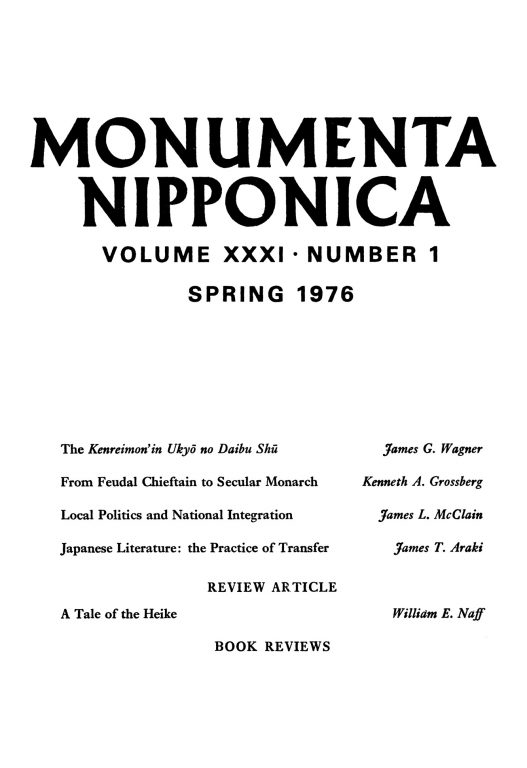 MN 31:1 (1976) 29–49From Feudal Chieftain to Secular Monarch: The Development of Shogunal Power in Early Muromachi JapanKenneth A. Grossberg
MN 31:1 (1976) 29–49From Feudal Chieftain to Secular Monarch: The Development of Shogunal Power in Early Muromachi JapanKenneth A. Grossberg MN 31:1 (1976) 51–75Local Politics and National Integration: The Fukui Prefectural Assembly in the 1880sJames L. McClain
MN 31:1 (1976) 51–75Local Politics and National Integration: The Fukui Prefectural Assembly in the 1880sJames L. McClain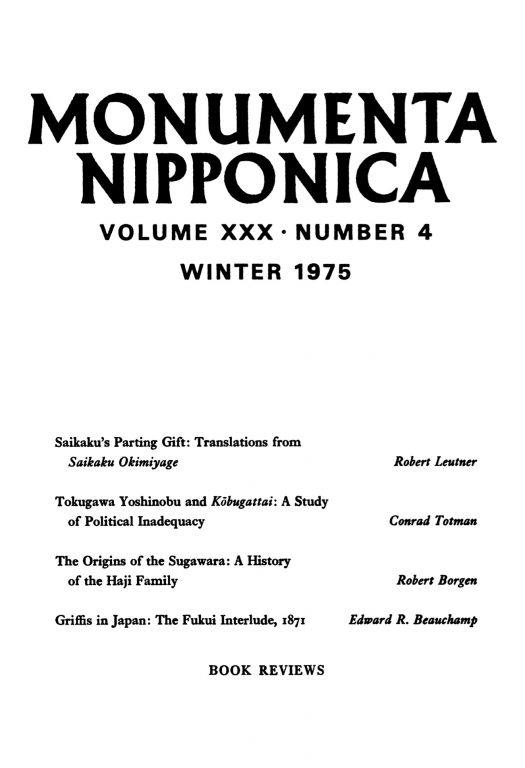 MN 30:4 (1975) 393–403Tokugawa Yoshinobu and Kōbugattai: A Study of Political InadequacyConrad Totman
MN 30:4 (1975) 393–403Tokugawa Yoshinobu and Kōbugattai: A Study of Political InadequacyConrad Totman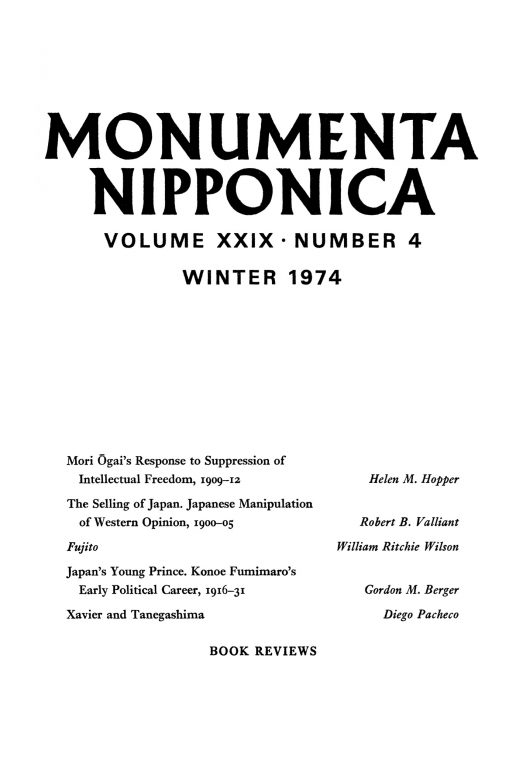 MN 29:4 (1974) 451–75Japan’s Young Prince: Konoe Fumimaro’s Early Political Career, 1916–1931Gordon Mark Berger
MN 29:4 (1974) 451–75Japan’s Young Prince: Konoe Fumimaro’s Early Political Career, 1916–1931Gordon Mark Berger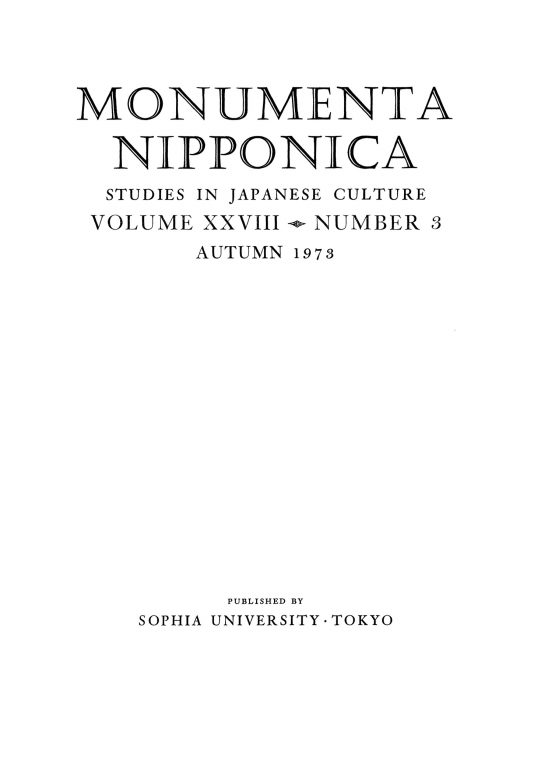 MN 28:3 (1973) 317–45Japan’s Peace Preservation Law of 1925: Its Origins and SignificanceRichard H. Mitchell
MN 28:3 (1973) 317–45Japan’s Peace Preservation Law of 1925: Its Origins and SignificanceRichard H. Mitchell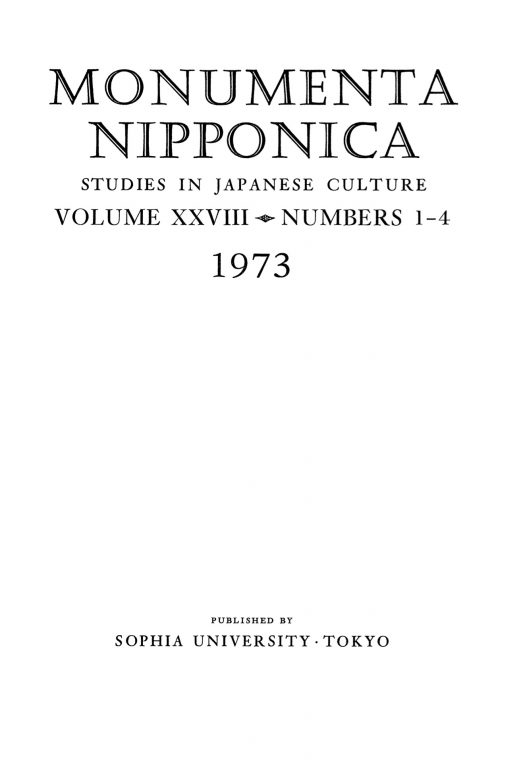 MN 28:2 (1973) 151–75Nishi Amane and the Reception of Western Law in JapanRichard H. Minear
MN 28:2 (1973) 151–75Nishi Amane and the Reception of Western Law in JapanRichard H. Minear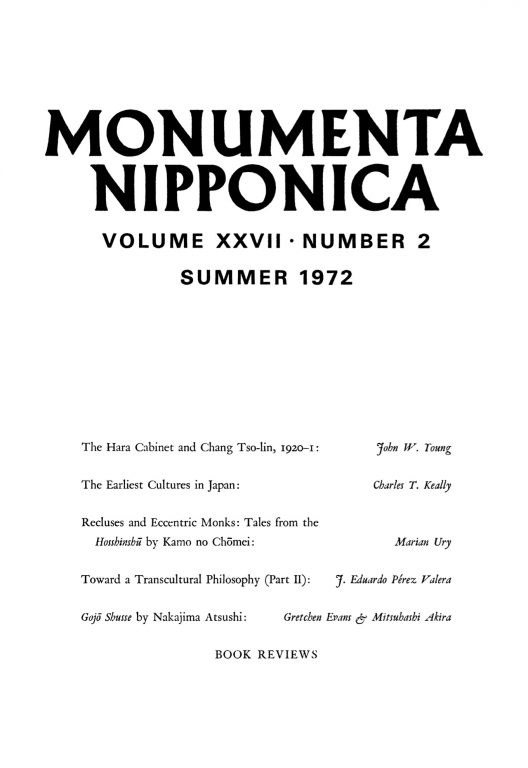 MN 27:2 (1972) 125–42The Hara Cabinet and Chang Tso-lin, 1920–1John W. Young
MN 27:2 (1972) 125–42The Hara Cabinet and Chang Tso-lin, 1920–1John W. Young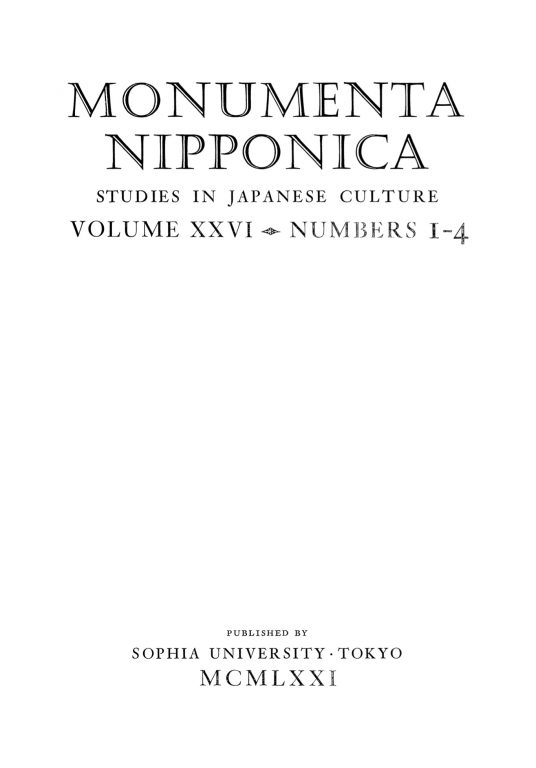 MN 26:3/4 (1971) 330–93KinjiseironkōKuga Katsunan, Translated by Barbara J. Teters
MN 26:3/4 (1971) 330–93KinjiseironkōKuga Katsunan, Translated by Barbara J. Teters MN 26:3/4 (1971) 319–93Kinjiseironkō: Thoughts on Recent Political DiscourseBarbara J. Teters
MN 26:3/4 (1971) 319–93Kinjiseironkō: Thoughts on Recent Political DiscourseBarbara J. Teters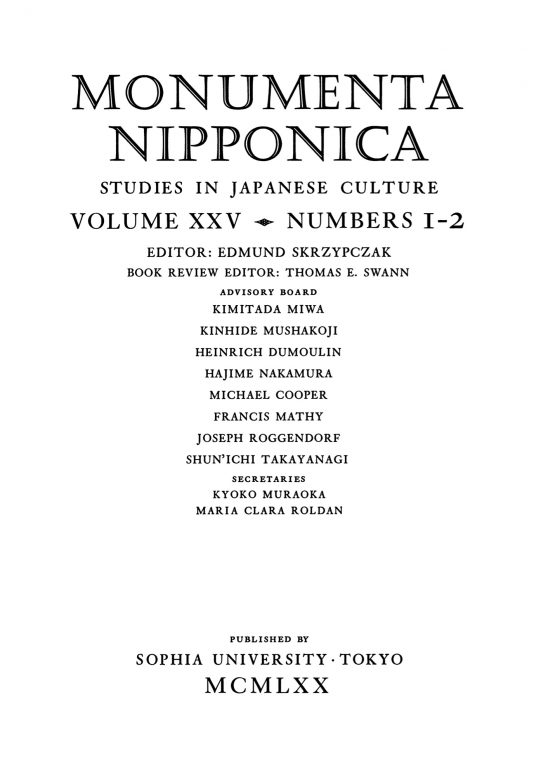 MN 25:1/2 (1970) 137–54Ono Azusa and the Political Change of 1881Sandra T. W. Davis
MN 25:1/2 (1970) 137–54Ono Azusa and the Political Change of 1881Sandra T. W. Davis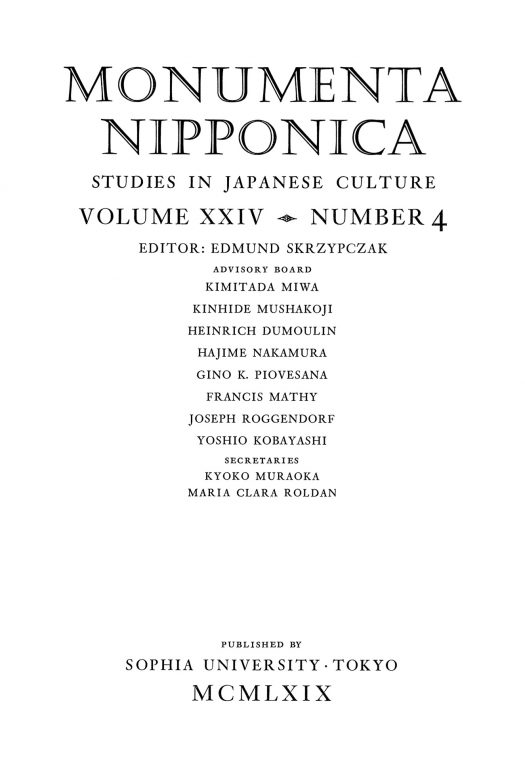 MN 24:4 (1969) 353–71Early Meiji Liberalism: An AssessmentMikiso Hane
MN 24:4 (1969) 353–71Early Meiji Liberalism: An AssessmentMikiso Hane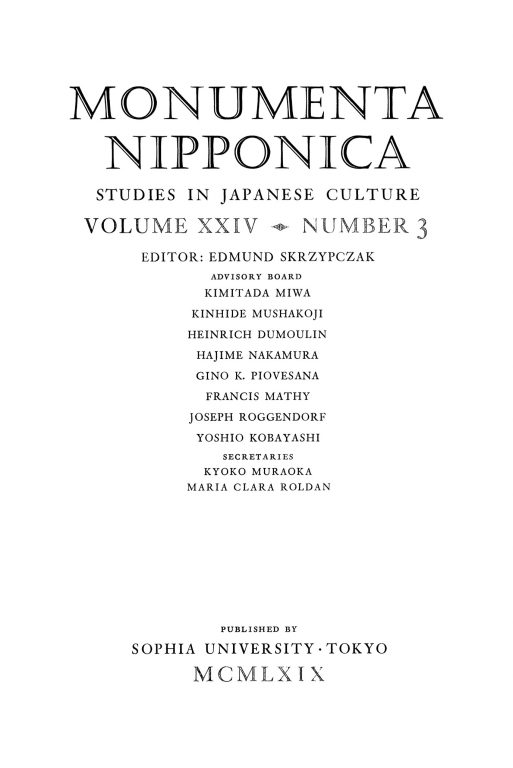 MN 24:3 (1969) 259–72The Sources of English Liberal Concepts in Early Meiji JapanMikiso Hane
MN 24:3 (1969) 259–72The Sources of English Liberal Concepts in Early Meiji JapanMikiso Hane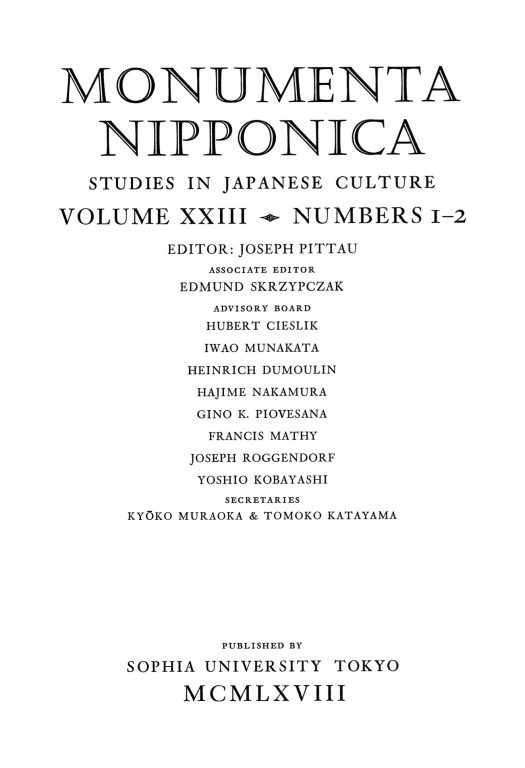 MN 23:1/2 (1968) 156–86Kokuze sanron: The Three Major Problems of State Policy. Recorded in the 1st Year of Man’en (1860) at Fukui, Echizen ProvinceD. Y. Miyauchi and Yokoi Shōnan, Translated by D. Y. Miyauchi
MN 23:1/2 (1968) 156–86Kokuze sanron: The Three Major Problems of State Policy. Recorded in the 1st Year of Man’en (1860) at Fukui, Echizen ProvinceD. Y. Miyauchi and Yokoi Shōnan, Translated by D. Y. Miyauchi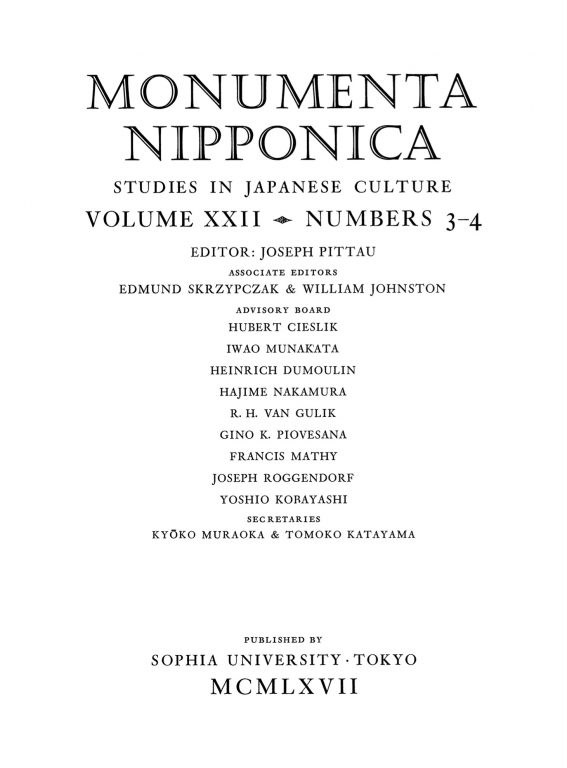 MN 22:3/4 (1967) 390–401“Dual Sovereignty”: Under the Japanese Shogunate as Interpreted by French Writers of the Eighteenth CenturyJacques Bésineau, Translated by Patrick O'Flanagan
MN 22:3/4 (1967) 390–401“Dual Sovereignty”: Under the Japanese Shogunate as Interpreted by French Writers of the Eighteenth CenturyJacques Bésineau, Translated by Patrick O'Flanagan MN 22:3/4 (1967) 402–36The Japanese Woman’s Movement: Ichikawa Fusae, A Pioneer in Woman’s SuffrageDee Ann Vavich
MN 22:3/4 (1967) 402–36The Japanese Woman’s Movement: Ichikawa Fusae, A Pioneer in Woman’s SuffrageDee Ann Vavich MN 22:3/4 (1967) 468–81Discussion of Violent Revolution, From a Jail CellKōtoku Shūsui, Translated by George Elison
MN 22:3/4 (1967) 468–81Discussion of Violent Revolution, From a Jail CellKōtoku Shūsui, Translated by George Elison MN 22:3/4 (1967) 437–81Kōtoku Shūsui: The Change in ThoughtGeorge Elison
MN 22:3/4 (1967) 437–81Kōtoku Shūsui: The Change in ThoughtGeorge Elison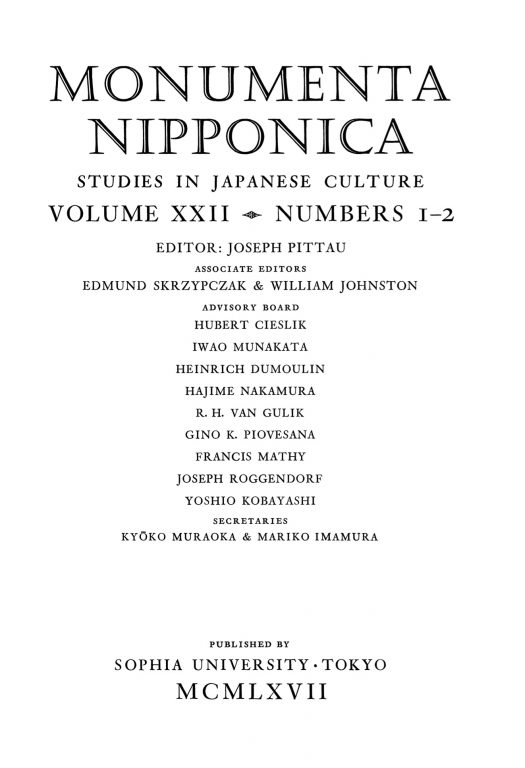 MN 22:1/2 (1967) 15–48The Challenge from Tradition: Attempts to Compile a Civil Code in Japan, 1866–78Robert Epp
MN 22:1/2 (1967) 15–48The Challenge from Tradition: Attempts to Compile a Civil Code in Japan, 1866–78Robert Epp MN 22:1/2 (1967) 103–21Political Action & Trade Unions: A Case Study of the Coal Miners in JapanAlice H. Cook
MN 22:1/2 (1967) 103–21Political Action & Trade Unions: A Case Study of the Coal Miners in JapanAlice H. Cook MN 22:1/2 (1967) 147–61The Political Cynicism of Law Students in JapanYasumasa Kuroda
MN 22:1/2 (1967) 147–61The Political Cynicism of Law Students in JapanYasumasa Kuroda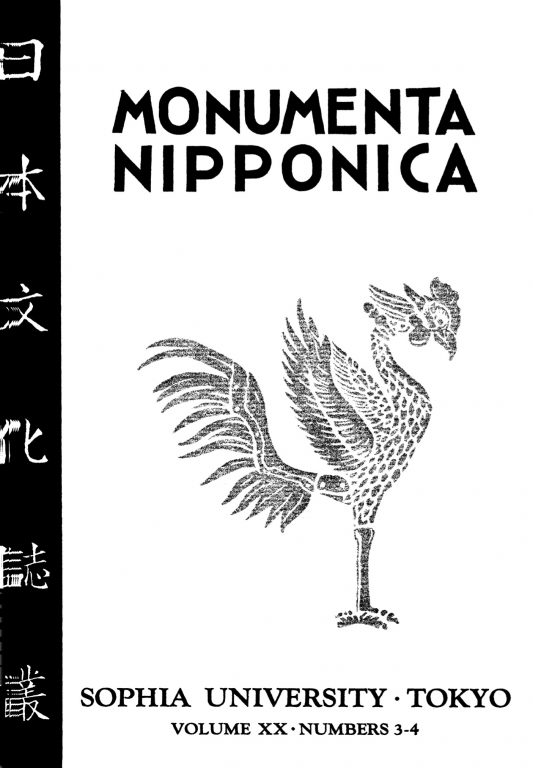 MN 20:3/4 (1965) 444–48Aspects of the National Character Reflected in Japanese Penal LawFumio Aoyagi
MN 20:3/4 (1965) 444–48Aspects of the National Character Reflected in Japanese Penal LawFumio Aoyagi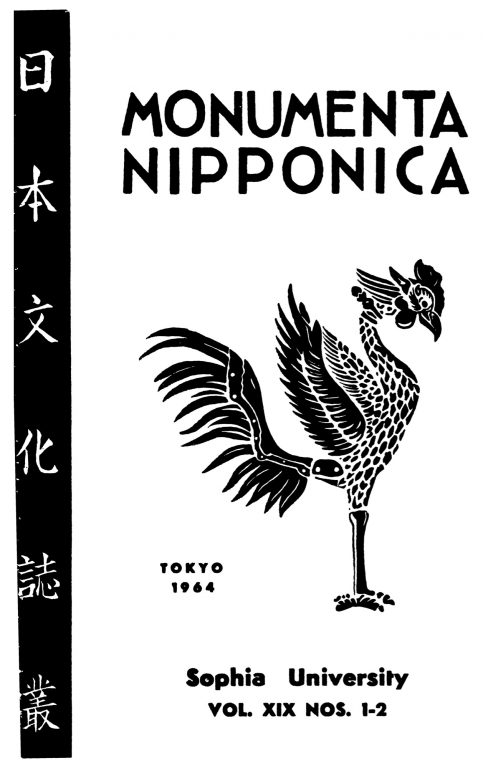 MN 19:1/2 (1964) 44–65Commentaries on the Constitution of the Empire of Japan (Part 2)Hermann Roesler, Translated by Johannes Siemes
MN 19:1/2 (1964) 44–65Commentaries on the Constitution of the Empire of Japan (Part 2)Hermann Roesler, Translated by Johannes Siemes MN 19:1/2 (1964) 37–65Hermann Roesler’s Commentaries on the Meiji Constitution (Part 2)Johannes Siemes
MN 19:1/2 (1964) 37–65Hermann Roesler’s Commentaries on the Meiji Constitution (Part 2)Johannes Siemes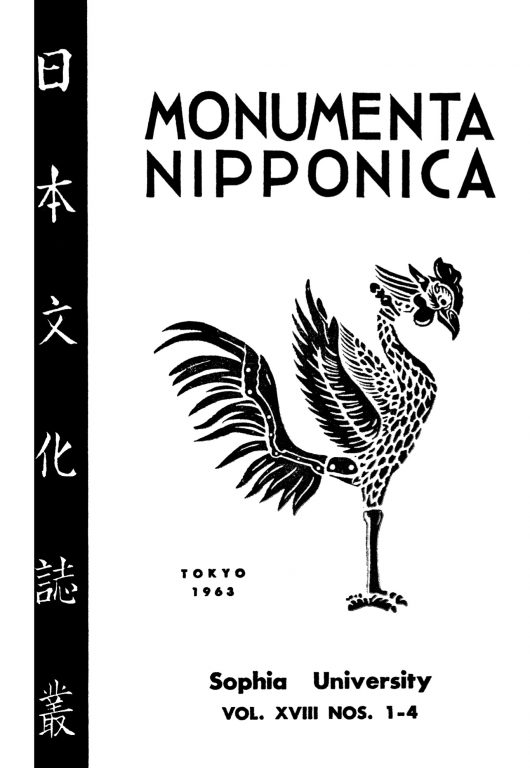 MN 18:1/4 (1963) 191–235The Case of Baba Tatsui: Western Enlightenment, Social Change and the Early Meiji IntellectualEugene Soviak
MN 18:1/4 (1963) 191–235The Case of Baba Tatsui: Western Enlightenment, Social Change and the Early Meiji IntellectualEugene Soviak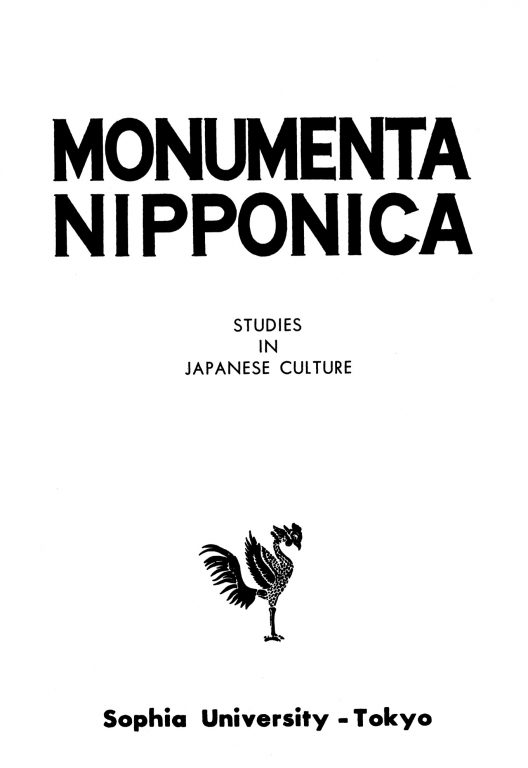 MN 17:1/4 (1962) 17–66Commentaries on the Constitution of the Empire of Japan (Part 1)Hermann Roesler, Translated by Johannes Siemes
MN 17:1/4 (1962) 17–66Commentaries on the Constitution of the Empire of Japan (Part 1)Hermann Roesler, Translated by Johannes Siemes MN 17:1/4 (1962) 1–66Hermann Roesler’s Commentaries on the Meiji Constitution (Part 1)Johannes Siemes
MN 17:1/4 (1962) 1–66Hermann Roesler’s Commentaries on the Meiji Constitution (Part 1)Johannes Siemes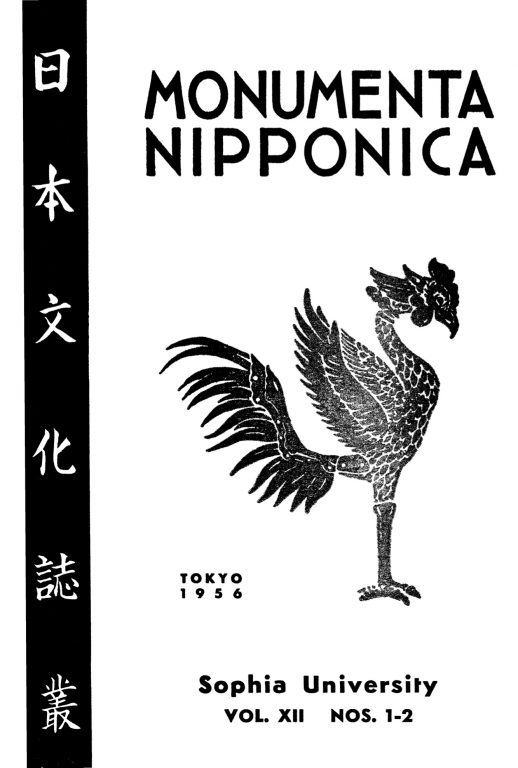 MN 12:1/2 (1956) 105–19The Japanese Legal System 1945–1955: Changes in RetrospectSakae Wagatsuma
MN 12:1/2 (1956) 105–19The Japanese Legal System 1945–1955: Changes in RetrospectSakae Wagatsuma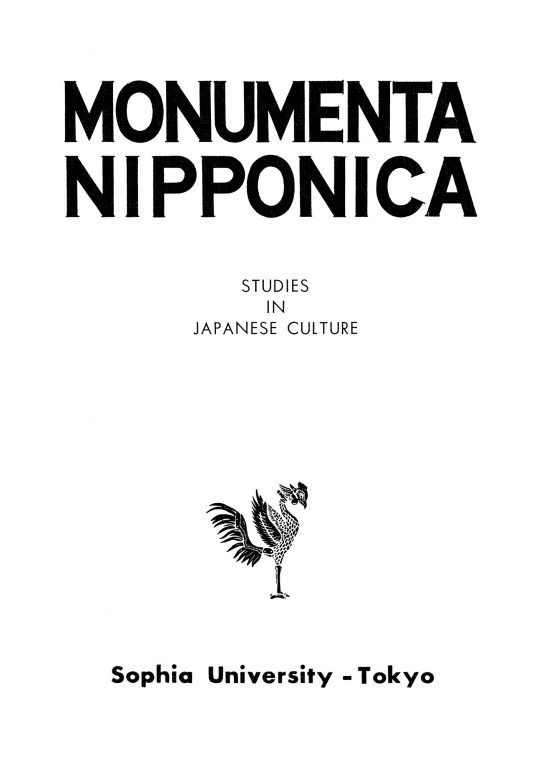 MN 7:1/2 (1951) 1–23Political Theories in the Japanese ConstitutionPeter J. Herzog
MN 7:1/2 (1951) 1–23Political Theories in the Japanese ConstitutionPeter J. Herzog































